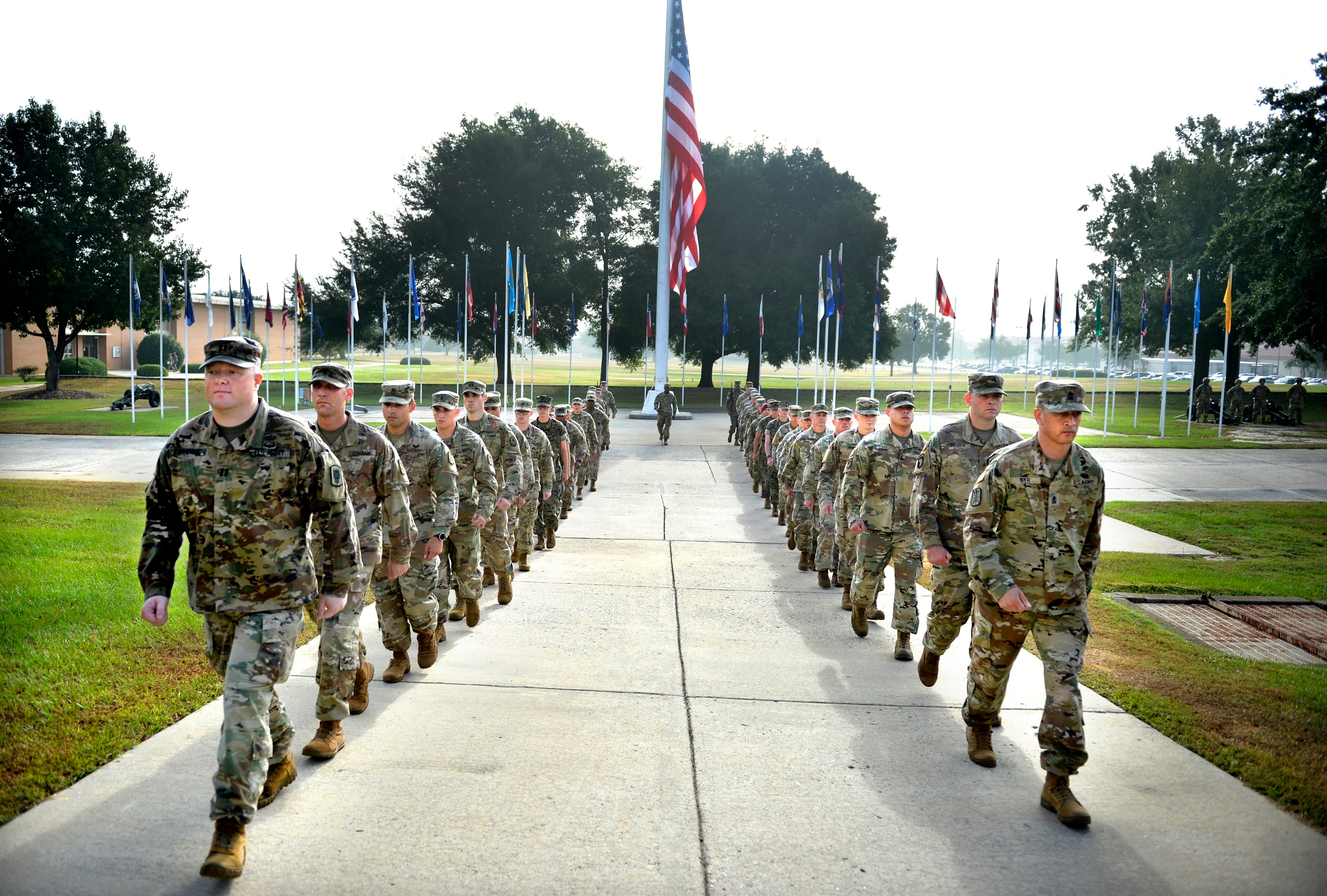![140423-D-AE587-001 [ID=28502527] ID=28502527](http://www.gannett-cdn.com/-mm-/d398b1f0b549e4bbe383b919e93ae49bd1f9a59e/c=0-167-3334-2673&r=115x86/local/-/media/2015/06/04/GGM/MilitaryTimes/635690400473243155-ARM-Herrmann-Hall.JPG)
And top leadership knows this and now believes that giving career enhancing educational opportunities is key for the Navy to keep pace with the private sector.
The Navy plans to offer Secretary of the Navy Ray Mabus' May 13 address to Naval Academy seniors, announced the service would provide more opportunities for top officers — and some enlisted — to the chance to study full time or part time for get an advanced degree.
"We need more," Mabus said in his speech. "We are missing far too many opportunities to develop battle-proven warriors into strategic thinkers."
And the key to doing this is education, Mabus said as he announced his plan to add 50 more billets to the Navy's Graduate Education Plan that includes many full-time, in residence graduate education programs and well as a voucher program that pays tuition and books to attend graduate school part time.
"There are numerous graduate education opportunities available that can benefit the individual as well as the Navy," said Fred Drummond, Navy education strategy and policy branch head for the chief of naval personnel. "Regardless of your personal and professional goals and your family's needs, there's a graduate education program that can fit into your career."
Officials say that officers interested in these programs should first check with their detailers to see if they're eligible and are at a career milestone where a cruise in academia could be possible. Those seeing more information first should go to the Navy Personnel Command website at www.npc.navy.mil. Click on "career info" on the top bar and then select "education" from the drop down menu.
Here's What you need to know about this year's offerings:
1. Lots of slots. What's available — In fiscal year 2016, there are Navy has billets for1,534 funded opportunities for degree and non-degree programs. They're available across nearly all the Navy's officer communities. That number is roughly the same as last year, officials say, fluctuating slightly with budget allowances.
This year, there's 498 quotas at Naval Postgraduate School in Monterey, California, has 498 quotas, and there are another at and another 129 slots quotas at top civilian universities. In addition, there are 241 Naval War College spots, 203 for other service grad schools and even 19 for international military colleges. will have 241 and there 203 quotas to get advanced degrees at joint or other service graduate schools and there's even 19 quotas at international military colleges around the world. , and 56 quotas dedicated to fellowship and training with
industry opportunities.
For those who don't make the cut, there's don't net one of the in residence programs, there's always a chance to get one of the 125 quotas for offered each year to unrestricted line officers through the Graduate Education Voucher Program. The rules for next fiscal year are expected by late July. The fiscal year 2016 program has yet to be announced, but details are expected in a NavAdmin by the end of July, officials say.
2. Get smart. Unique opportunitiesAdvanced education quotas are available overseas, where there's five quotas each year in the Olmsted Scholar Program which offers Five officers can earn the chance to learn a foreign language while also getting a graduate degree at a foreign university during a two-and-a-half to three year tour.
There's also slots to pursue a political military master's degree or to attend law school. Eight quotas each year will help officers pursue a political military master's degrees at various institutions and each year, the Navy will send seven officers to law school under the Law Education Program that could see them finishing their career in the Judge Advocate General's Corps.
3. Innovation U. New for this year: Up to 10 military students can enroll in the New This Year — A new graduate education opportunity is available through Purdue University's Institute for Defense Innovation. Called The Purdue Military Research Initiative is offering doctoral and master's programs for up to 10 new students each year across all the military services for a total of 30 students at the school at any given time.
Officers will get up to three years to earn a Ph.D., and two for a master's degree, programs in the tuition-free programs. The course of study that can be programs that The tuition-free doctoral and master*s programs across a range of subjects considered enhancing to the services butcustomized to the interests of the officer and the needs of the Navy, like naval applications for r example, studying alternative energy and the use of energy efficient technology in naval applications is being offered.
More information on this new program can be found at http://www.purdue.edu/research/vpr/idi/pmri/.
![Officers eligible for stint at a Fortune 500 company [ID=28500923]](/Portals/_default/Skins/PrestoLegacy/CommonCss/images/smartembed.png)
4. Coming soon. Thirty officers will be picked and sent to school starting in fiscal 2017, but with a new twist — they'll be chosen for that graduate opportunity by the Navy's type commanders: surface, air, submarine, expeditionary, etc. and the new twist is that the picking will be done the Navy's various type commanders - such as surface, air and submarine forces.And with Mabus' promise for more opportunity, it might soon not only be "big Navy" picking who gets to go to grad school. In fiscal 2016, a new pilot program will be announced that will send 30 more unrestricted line officers to grad school Officials say this program will be different from those offered today as officers will not apply for them, instead,
Those selected will be they will be selected by their type commander or community andoffered the chance to apply to the program of their choice and have the Navy fund their attendance them to attend.
Though the details are still being worked out, t
5. Enlisted opportunities. Sailors who've earned a with their bachelor's degree have opportunities to get some shots at getting more advanced degrees, too. Enlisted's, too have some opportunity to get advanced degrees, too, provided they've completed their bachelor's degree.
The only full-time, in-residence graduate education for sailors are the five enlisted spots at the Applied offered to enlisted sailors is the Cyber Operations master's degree program at the Naval Postgraduate School in Monterey, California. This program allows up to five enlisted each year 12 months to obtain their degree.
Currently this is the only funded, in residence and full-time enlisted graduate level program, however, officials say as more enlisted get degrees, they are always looking for new opportunities, where they make sense for the Navy.
But under the enlisted Advanced Education Voucher Program, Navy-relevant studies in up to three-year degree programs master degrees can get funded. by the service in up to three-year degree programs. The program is limited to chief petty officers and above, and they who must do the schoolwork during off-duty hours or on special arrangement from their commands during work hours.
Mark D. Faram is a former reporter for Navy Times. He was a senior writer covering personnel, cultural and historical issues. A nine-year active duty Navy veteran, Faram served from 1978 to 1987 as a Navy Diver and photographer.





